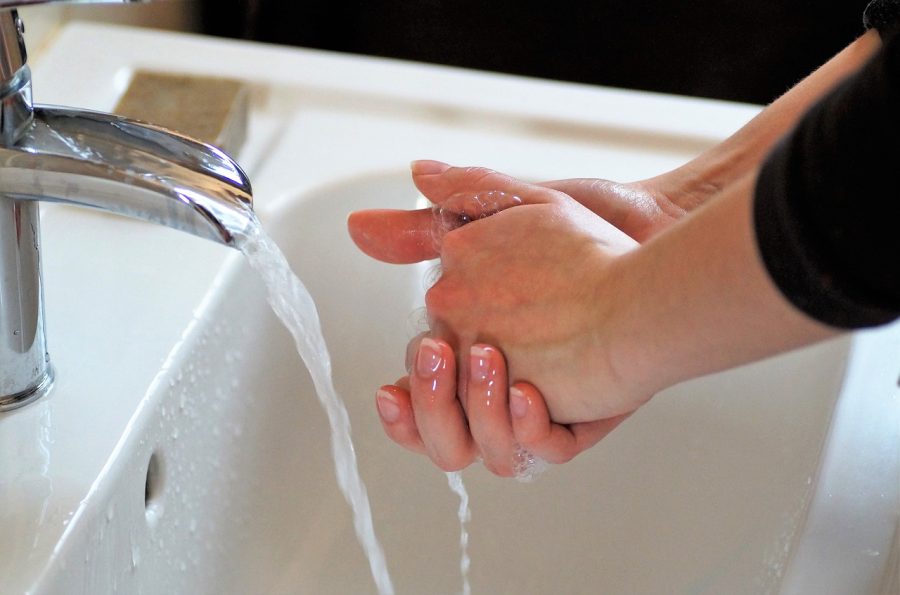Baruch bathrooms should have both working hand air dryers and stocked paper towel dispensers
May 15, 2022
A visit to the Baruch College bathrooms poses a strange dilemma. It is possible to be conscious about health or the environment –- but not at once.
Hardly any of the restrooms on campus have a working air dryer or a stocked paper towel dispenser, forcing students to sacrifice hygiene for sustainability, and vice versa.
Baruch should have both options in all bathrooms, so it does not force the hands of the student body to strictly follow one way.
Such a measure is especially necessary during the COVID-19 pandemic, when hygienic practices should be encouraged as mandates are lifted and people lower their guard.
Many types of bacteria are transmittable through hand contact. Aside from hand washing, hand drying is the most effective method of preventing the spread of disease.
When in a wet state, the hand can transfer practically any type of germ to another surface.
Germs tend to cling to improperly washed hands, meaning that the hand-washing facilities granted to Baruch students,or lack thereof, might have a real impact on the well-being of the student body.
However, even in bathrooms, which contain both paper towel dispensers and air dryers, students still need to weigh their options.
Paper towels are single-use, making them the more hygienic choice. With paper, students only need to wipe their hands and dump it in the recycling bin.
This accounts for less contamination within the space of the toilet. Air dryers, on the other hand, often blow fast air to the point that germs might fly to different parts of the room.
Additionally, warm air dryers are believed to contribute to optimal conditions for bacterial growth.
Thus, when using hand dryers, students should be conscious of their surroundings. If there is a long line for the dryer, then it might be better to forego it entirely to not risk having incompletely dried hands or spreading germs.
Conversely, paper towels can be extremely wasteful. Nearly 13 billion pounds of paper towels are used each year in the United States alone, equating to about 40 pounds of paper towels per person per year.
Similarly, air dryers tend to have a high initial cost, whereas paper towel dispensers are cheap but require funds to be maintained and stocked.
From a medical viewpoint, price shouldn’t be a deterring factor. The slim difference in long-term cost means that both options should always be available to students so that they can choose between an air dryer or a paper towel for themselves.
Regardless of the pros and cons of either alternative, both air dryers and paper towels serve the fundamental purpose of helping bathroom visitors maintain healthy habits.
Diverting funding toward installing both machines around Baruch’s bathrooms, as well as ensuring that paper towel dispensers are always fully stocked, should be a priority.








Rebecca • May 22, 2022 at 4:11 pm
Air dryers are not Covid friendly